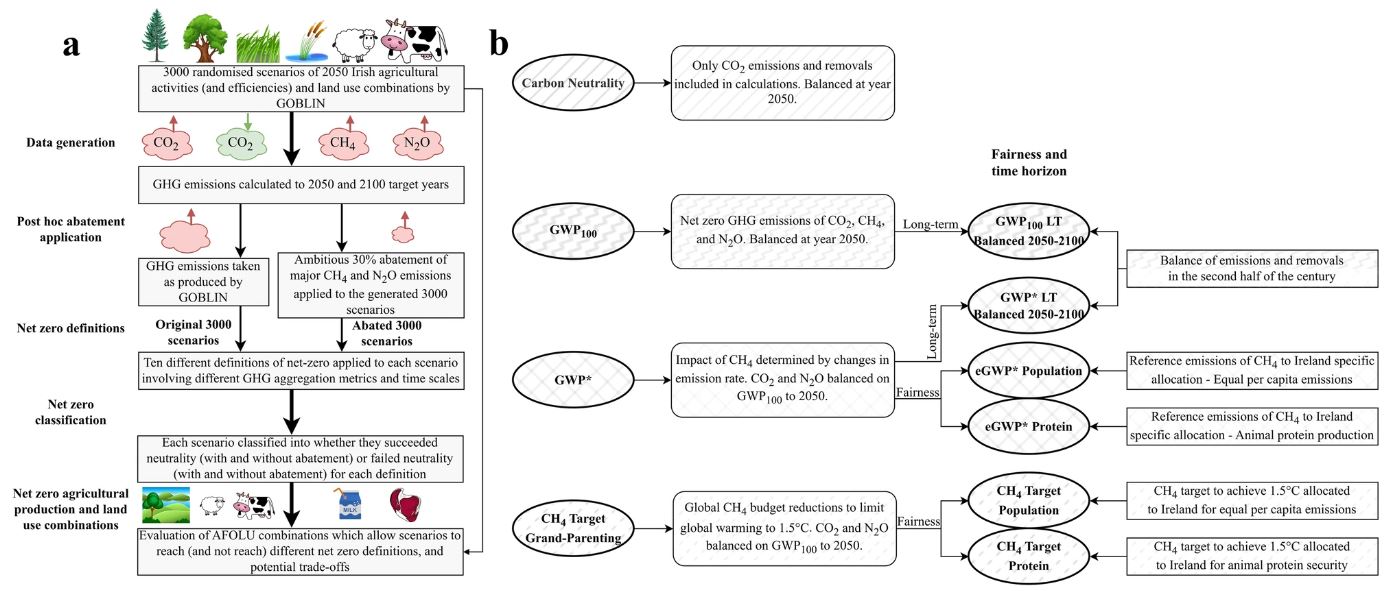February 28, 2024 | Communications Earth & Environment |
Introduction: Researchers from School of Biological & Chemical Sciences and Ryan Institute in Ireland, and The James Hutton Institute in UK jointly examined global efforts towards achieving "net zero" (NZ) targets, exploring terminology inconsistencies and the role of the land sector in meeting these goals. The paper highlights the challenges in defining NZ, particularly in addressing livestock methane emissions, and discusses implications for countries like Ireland, a major milk and beef exporter.
Key findings: The resarchers assessed 3,000 randomized scenarios, projecting future agricultural production and greenhouse gas emissions under compatible land use combinations in Ireland. Results showed that 1–85% of scenarios met NZ criteria, with common actions including afforestation, organic soil re-wetting, and cattle destocking. Technical emission reduction efforts moderated but didn't replace these actions. Even with abatement, milk output varied widely while suckler-beef production decreased significantly, and forest cover increased substantially. Achieving NZ demands transformative changes in Ireland's land sector, requiring prompt action due to lagging effects. A just transition necessitates envisioning future land use supporting a sustainable food system and circular bioeconomy. The study underscores the urgency for international consensus on methane emissions accounting in NZ targets.
Figure | Assessment of future agricultural production and land use in Ireland with various NZ definitions. A Workflow indicating generation, abatement modification, NZ filtering, and subsequent post hoc analysis of 3000 scenarios of future agricultural production and land use combinations in Ireland. b Summary of NZ definitions applied in this study, with ovals representing definitions. These definitions encompass CO2 only emissions (carbon neutrality), the balance of GHGs over 100 years (GWP100), warming potential (GWP*), and a national CH4 emission target based on equal percentage reduction across countries to achieve temperature stabilisation (CH4 Target Grand-parenting). Definitions on the right are derivatives of four fundamentally different definitions on the left. LT: Long-term, indicating warming or flux balance out to 2100 (as opposed to balance achieved in the year 2050 only). Fairness was explored within GWP* and CH4 Target definitions by differing Ireland’s future NZ CH4 emission targets and reference emissions levels based on allocation of global CH4 emissions compatible with temperature stabilisation equally per capita, globally, or by national protein production14. Further details can be found in the Methods Section.





